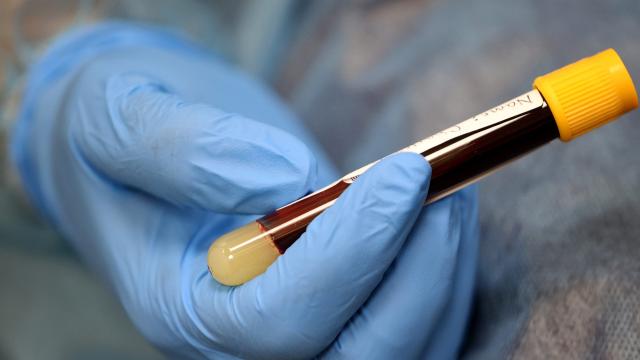A new study suggests that a small portion of the population carries antibodies that respond to the coronavirus behind covid-19 that were created before the pandemic emerged last late year.
The research is the latest to indicate that some people may have a degree of preexisting immunity to the coronavirus, lifted from previous bouts with the common cold caused by related viruses. But though it’s possible these findings could help explain some trends in the pandemic, such as children being less vulnerable to severe illness, it’s still unclear just how protective this borrowed immunity could really be.
The new study, published in Science on Friday, tested blood samples collected from adults and children in the UK prior to the known start of the pandemic in December 2019, as well as from people early on in the pandemic who tested negative for SARS-CoV-2, the coronavirus responsible for covid-19. These samples were compared to people who had confirmed covid-19.
[referenced id=”1237462″ url=”https://gizmodo.com.au/2020/08/common-cold-coronaviruses-might-prime-the-immune-system-to-recognise-sars-cov-2/” thumb=”https://gizmodo.com.au/wp-content/uploads/2020/08/06/muaftxorxsc7mme2jk8q-300×168.jpg” title=”Common Cold Coronaviruses Might Prime the Immune System to Recognise SARS-CoV-2″ excerpt=”A group of scientists think they’re closer to understanding why some people’s immune systems seem to recognise the coronavirus that causes covid-19, despite the person never having been infected by it. The team’s new research released Monday suggests that past infections with much milder but related coronaviruses that cause the…”]
As expected, most of the confirmed cases had a diverse group of antibodies geared to respond to the virus’s spike protein, used by the virus to infect cells. These came from all three of the antibody types that combat viral infection (IgG, IgM, IgA). But in some uninfected patients, including those confirmed to have a recent common cold coronavirus infection, the researchers also found antibodies that appeared to react to SARS-CoV-2. “Our results from multiple independent assays demonstrated the presence of preexisting antibodies recognising SARS-CoV-2 in uninfected individuals,” the researchers wrote.
The antibodies found in the uninfected people were clearly distinct from those in covid-19 patients. They were almost all IgG, the most common antibody made by the immune system. They were also only found in a small percentage of adults. In samples from 302 adults, only 16 (5.26%) carried these antibodies. However, that wasn’t as true for children: The researchers found these antibodies in 21 out of 48 samples (44%) collected from kids between the ages of 1 to 16.
The authors speculate that the higher levels of cross-reactive antibodies seen in children could help explain why they seem less likely to contract covid-19 than the general population, or why they usually experience much less severe illness. Children get sick with minor colds all the time, and they found evidence that more frequent recent infections by other human coronaviruses could explain the higher levels of antibodies in children.
The study is seemingly the first to find these cross-reactive antibodies in people. Yet other research has shown that some people also carry T cells — another crucial part of the immune system — borrowed from earlier common cold infections that can respond to SARS-CoV-2. Together, these studies indicate that some people really could have a preexisting immune response to covid-19. But there’s reason to be cautious in interpreting the results.
“We still don’t know anything about protection, despite a number of groups showing cross-reactivity. The epidemiology shows that cross-reactivity is unlikely to prevent infection or spread — at best it may alter symptoms,” said lead author Kevin Ng, a PhD student and virus researcher at the Francis Crick Institute in London.
There are people who have argued that the T cell studies show that many people in the world are already protected from the pandemic, often to justify their stance against aggressive actions to curtail the spread of the viral illness. However, the scientists behind the research have vocally spoken out about these claims. They’ve noted that there is still much uncertainty about how these cross-reactive T cells could impact a person’s response to infection, and that it’s unlikely having these cells would significantly prevent a person from catching or spreading covid-19 to others. In other words, these T cells aren’t getting us to so-called herd immunity any faster.
Another reason to be cautious: It’s also possible that having cross-reactive antibodies could actually raise the risk of more serious illness in some cases, something known to have happened with the original SARS virus.
In any case, there will have to be more research done to be sure of anything. Aside from helping explain why certain groups of people could be less vulnerable to covid-19 in some way, the researchers speculate that understanding the ins-and-outs of this borrowed immunity could someday lead to better vaccines against both current and future coronaviruses.
“We’re working now to figure out why some people make cross-reactive antibodies and some don’t,” Ng said. “If we can figure that out, we can use that information in vaccines to stimulate an immune response that would theoretically target all coronaviruses.”
